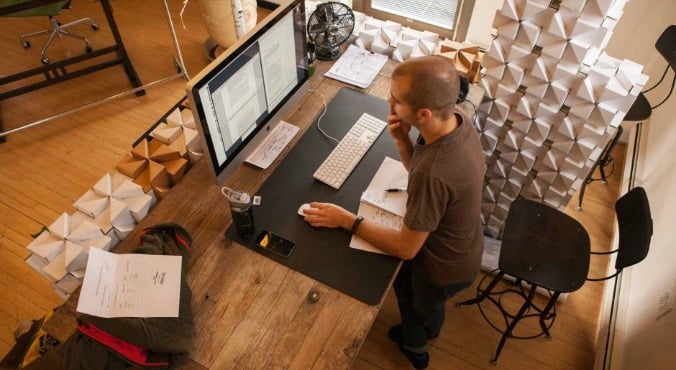
Image: ABC. AM by Lucy Carter.
As standing desks grow in popularity, research shows the new additions to offices around the world can cause health problems if they are not used properly.
But a study from the University of Sydney found while the desks helped workers feel more energised, they can be hazardous if employees go too hard, too soon.
The pilot study, published in Preventive Medicine Reports, measured the effects on the productivity of 30 call centre workers using powered standing, or “sit/stand” desks, over a 19-week period.
Dr Josephine Chau, a research fellow at the University of Sydney’s school of public health, told AM standing desks could cause health problems – particularly if workers tried to use them too much in the early stages of adoption.
“We know that as people work standing up for too long, there is certain harms associated with that as well.
“So if you work for extended periods of time standing and without moving, for example, one of the risks are things like varicose veins or maybe even lower back ache.”
Dr Chau said workers should consider the move to a standing desk as like training for a marathon, not a sprint.
“It’s like introducing any new exercise to yourself, your body has to get used to it so if you go from zero standing to standing two hours a day, you’re probably going to experience some kind of discomfort.
“Another thing to remember, especially for women who like to wear high heels, is that it’s probably not a good idea if you want to work standing up as well and you might want to have a comfortable pair of shoes under your desk or in your drawer.”
Good news for employers.
Dr Chau said the workers who were given sit/stand desks also reported being happier and had more energy at the end of their shifts.
“Those workers who got the sit/stand desk said more of them felt like their employer cared about them,” Dr Chau said.